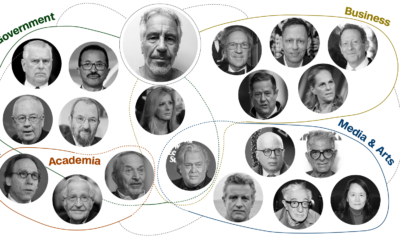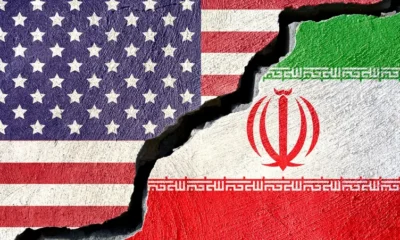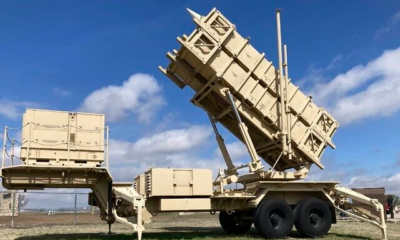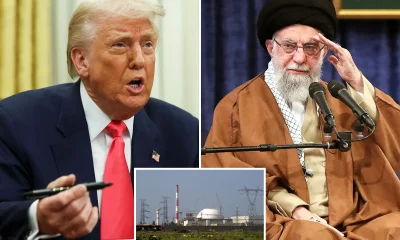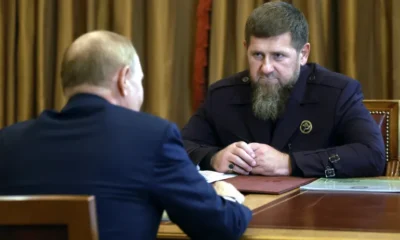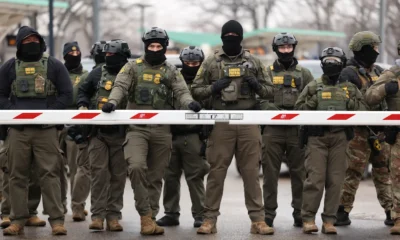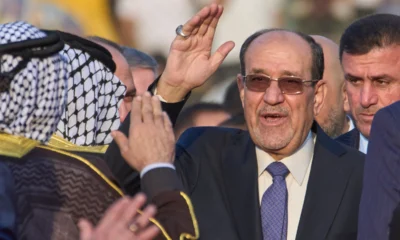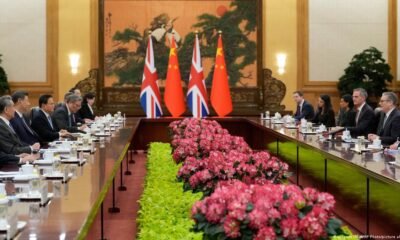Africa
AFRICOM, African Militaries Join Forces to Combat Gender-Based Violence in the Military
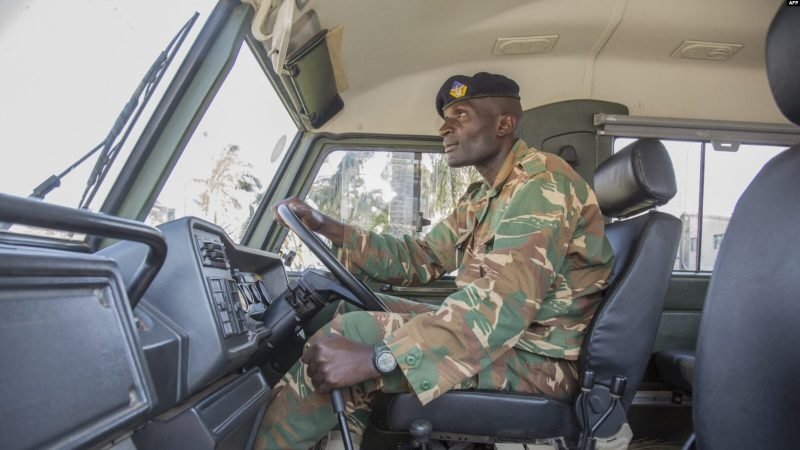
U.S. Africa Command leads regional collaboration in Zambia to strengthen efforts against workplace harassment and violence in military settings.
U.S. Africa Command (AFRICOM) and Southern African military forces have initiated a crucial regional partnership aimed at combating gender-based violence (GBV) within military ranks. The initiative, taking place through a series of workshops in Lusaka, Zambia, focuses on enhancing regional collaboration to address the pervasive issue of harassment and violence in military workplaces.
These efforts are being led by AFRICOM and U.S. Air Forces in Europe and Africa (USAFE-AFAFRICA), with active participation from the Zambia Defense Force and military representatives from Botswana. The workshops serve as a platform for knowledge sharing, open dialogue, and the development of comprehensive strategies to reduce sexual harassment and gender-based violence.
The workshops emphasize the critical role of military leadership in creating environments where all personnel feel valued and protected. Lieutenant Colonel Linda Jones, Chief of African Health Engagements at USAFE-AFAFRICA, underscored the responsibility leaders bear in shaping the culture of respect within the military.
“It is the responsibility of leaders that all of us set the tone,” Jones remarked, highlighting the need for a proactive stance in both enforcing policies and modeling respectful behavior. She emphasized the importance of empowering personnel to report misconduct without fear of retaliation.
U.S. Air Force Tech Sergeant Samara Brown spoke about the detrimental effects of unchecked gender-based violence on military performance. She pointed out that such violence erodes trust within military units, disrupts cohesion, and ultimately compromises the readiness of personnel to execute their duties effectively.
“Gender-based violence undermines the core values of any military organization,” Brown said. “We must take a firm stand against it, not just as a matter of policy but as a commitment to uphold the principles of honor, integrity, and respect that define our service.”
The Lusaka workshops, facilitated by retired U.S. Air Force official Keith Castille, focus on building collaborative frameworks to tackle gender-based violence. Castille stressed that no military could address the issue alone and that regional cooperation was key to developing effective solutions.
“By sharing knowledge and collaborating across branches and communities, we can develop more effective strategies to combat gender-based violence,” Castille stated. He also noted that engaging in open dialogue and joint initiatives would strengthen the collective response to the issue across Southern Africa.
Zambia is taking a proactive role in this regional effort. Zambian Defense Force Major Stephen Muleya emphasized the importance of creating a harassment-free military workplace. He argued that personnel are more likely to focus on their duties when they feel secure and unthreatened by violence or intimidation.
In line with these efforts, Zambian authorities announced plans to open a regional office dedicated to innovative solutions for combating gender-based violence. Zambian Air Force legal adviser Major Glory Musonda noted that collaboration with U.S. partners would contribute to actionable solutions within the region’s military forces.
“We all have a responsibility to build military environments where respect and dignity are upheld,” Musonda stated, urging active steps to ensure the safety and well-being of every service member.
The ongoing discussions in Lusaka also align with the broader agenda of women, peace, and security, which U.S. Army War College officials are addressing in separate talks. This initiative is part of a larger effort to create safer, more inclusive military environments and to strengthen the overall capacity of regional forces in addressing gender-based challenges.
The joint effort between AFRICOM and Southern African militaries marks a significant step forward in addressing gender-based violence within the military.
By fostering regional collaboration, enforcing leadership accountability, and developing comprehensive strategies, this initiative aims to create a military culture that values respect, dignity, and the well-being of all service members. As these efforts progress, they offer the potential for long-term change, not only in military environments but also in the broader societal context of gender equality and security.
Africa
West Africa’s Coup Crisis: Five Hard Lessons Every Defender of Democracy Must Know

West Africa’s Coup Wave: Five Shocking Truths Behind the Military Takeovers Fueling Democracy’s Collapse.
How contagion, civilian support, weak international response, learned tactics, and foreign alliances are reshaping Africa’s political landscape.
Five key lessons from recent West African coups reveal why military takeovers are spreading, gaining public backing, and outlasting expectations—threatening democratic progress across the region.
Five years after Malian soldiers toppled President Keïta, West Africa and parts of the continent face an alarming resurgence of military coups. From Mali to Niger, Burkina Faso, Sudan, Chad, Guinea, and Gabon, the pattern is clear: coups are no longer isolated incidents but part of a spreading contagion threatening democratic governance.
The first truth is contagion itself. Successful takeovers embolden others, especially when coup leaders quickly consolidate control and avoid chaos. Potential plotters watch closely—if consequences are harsh, coups falter; if they succeed, copycats emerge.
Second, civilian support is pivotal. Masses cheering soldiers reflect deep dissatisfaction with civilian regimes, giving military rulers public legitimacy that shields them from opposition and international pressure. This support has been visible in Niger, Mali, Guinea, and Burkina Faso.
Third, international responses often fail to deter. Weak, delayed sanctions and symbolic suspensions send mixed signals that coups carry few lasting costs. While Niger saw some pushback, countries like Chad and Gabon faced muted international pressure, enabling entrenched military rule.
Fourth, coup leaders learn from one another. They observe and adopt tactics to entrench authority—often using elections as facades to legitimize military regimes while maintaining absolute control. This strategy has extended average junta rule from weeks to nearly 1,000 days in this latest wave.
Finally, many coup governments have pivoted away from traditional Western allies, deepening ties with Russia and forming blocs like the Alliance of Sahel States, asserting sovereignty while entrenching authoritarianism.
Together, these lessons reveal a grim reality: treating coups as disconnected events ignores the powerful dynamics sustaining and spreading military rule. The global community must confront this networked threat decisively or risk watching democracy erode further across West Africa.
Africa
Tanzania Declares Currency War — Shuts Down the Dollar, Orders Nation to Use Shilling

Foreign currencies banned in Tanzanian markets as Dar launches bold crackdown to defend the shilling and assert monetary sovereignty.
Tanzania has outlawed the use of foreign currencies for domestic transactions, triggering a regional shift in economic sovereignty. Will others follow?
Tanzania just fired a shot in the war for financial sovereignty — and the U.S. dollar was the first casualty. In a stunning move that could ripple across Africa, the Bank of Tanzania has banned the use of all foreign currencies for local transactions. Whether you’re paying for a coffee, signing a contract, or closing a million-dollar deal, the law is now clear: Only the Tanzanian shilling is legal tender inside the republic.
Effective immediately, the new policy bans pricing, quoting, or accepting payment in foreign currencies like the U.S. dollar or euro for any domestic business. Even contracts in foreign currency are now under heavy restrictions. Businesses have been ordered to rip up deals signed in dollars unless they meet strict transition timelines.
The message is clear: Tanzania is done playing second fiddle in the global currency game.
This dramatic currency lockdown comes just months after the Tanzanian shilling, once a darling of global investors, started losing ground again. After soaring 9.5% in late 2024 — becoming the world’s best-performing currency — it lost 3.6% of its value in the first quarter of 2025. The government is now taking no chances.
Tourists and foreigners are not exempt. While they can still use dollars or euros, it must be through official conversion — no backdoor deals, no shady forex kiosks, no exceptions. Anyone holding greenbacks under the table is now on notice.
What’s at stake? Everything from regional stability to Africa’s debt structure. If Tanzania succeeds, other nations with volatile currencies — from Kenya to Ghana — may follow suit. If it fails, the shilling’s slide could turn into a freefall.
But Tanzania is not retreating. With $5.6 billion in reserves, a gold-buying central bank, and strong IMF-backed growth at 5.5%, President Samia Suluhu Hassan’s government is betting that bold monetary nationalism is the path forward.
This isn’t just a policy tweak. It’s a warning shot — aimed at both the black market and the legacy of foreign financial domination. Tanzania wants to chart its own course. And it just put the dollar on lockdown to do it.
Africa
IS-Linked ADF Rampage: 23 Killed, Dozens Kidnapped in Eastern DRC

The Islamic State (IS)-affiliated Allied Democratic Forces (ADF) have launched a series of brutal attacks, resulting in the deaths of at least 23 civilians and the abduction of dozens more, according to reports from the UN Office for the Coordination of Humanitarian Affairs (OCHA).
The attacks, which unfolded over two consecutive days in the Ituri Province, saw ADF militants ravaging several villages, leaving a trail of destruction and fear. Additional reports from the OCHA highlight further violence in the Beni Territory of North Kivu Province, where another 17 civilians were killed on Wednesday, underscoring the relentless brutality of the ADF’s campaign in the region.
The ADF, originally a Ugandan rebel group, has long been a source of instability in the eastern DRC, exploiting the dense forests to establish a base of operations from which they have conducted raids and kidnappings, often targeting remote villages with little to no defense.
In the wake of the attacks, hundreds of villagers fled to neighboring areas seeking safety from the violence that has torn through their communities. The situation remains dire, with local authorities and humanitarian organizations struggling to address the massive displacement and the ongoing security crisis.
The violence also spilled over into South Kivu Province, with local medical sources reporting deadly explosions at an M23 rally in Bukavu, which killed at least 11 people and injured dozens. This incident further complicates the already tense situation in the region, where more than 125,000 people have been displaced since early February due to continuous clashes.
Humanitarian efforts have been severely hampered by the ongoing conflict, with many organizations forced to temporarily suspend their operations. However, assessments have resumed, albeit under challenging and dangerous conditions.
The UN Refugee Agency (UNHCR) has reported a significant influx of Congolese civilians fleeing the conflict to Burundi, with an estimated 60,000 people seeking refuge in just two weeks. These refugees, including men, women, and children, have undertaken perilous journeys, walking hundreds of kilometers in a desperate search for safety.
UNHCR and its partners are ramping up assistance, setting up emergency shelters and distributing essential relief items such as food, water, sleeping materials, and hygiene kits to accommodate the growing number of displaced persons.
This ongoing crisis in the eastern DRC highlights the severe humanitarian consequences of armed conflict and the urgent need for increased international support to restore stability and provide relief to the thousands of civilians caught in the crossfire.
Africa
Algeria’s Selma Haddadi Rises: The New Power Broker in the AU

Algerian diplomat Selma Haddadi secures the AU Commission deputy chair, solidifying North Africa’s influence in the continental body.
Algeria has cemented its grip on African diplomacy as Selma Haddadi—the country’s ambassador to Ethiopia—secures the African Union Commission’s deputy chairmanship. Elected during the 38th AU Summit, Haddadi triumphed over five contenders from North Africa, reinforcing Algeria’s growing clout in continental affairs.
With a bold vision for Africa, Haddadi promises to infuse fresh energy into AU leadership, unlocking the continent’s human capital and advancing the African solutions to African problems agenda. Her victory signals a strategic shift, as Algeria strengthens its position in the AU alongside Djibouti’s Mahamoud Ali Youssouf, who clinched the chairperson seat.
This election reshapes AU leadership dynamics, with North and East Africa now wielding unprecedented influence. Haddadi’s challenge? Turning AU ambitions into reality—where bureaucratic inertia often stalls progress. With her diplomatic experience and Algeria’s backing, she could be the powerbroker Africa needs to push forward urgent reforms and assert continental autonomy.
Africa
African Nations Prepare for What’s to Come After Pause on US Aid

With Trump’s 90-day foreign aid freeze in place, African nations scramble for alternatives as vital health and infrastructure programs face uncertainty.
Trump’s aggressive freeze on US foreign aid has sent shockwaves through Africa, forcing governments to confront a grim reality—decades of reliance on American funding are crumbling. Health ministries, already stretched thin, are scrambling to find solutions as critical programs, including HIV/AIDS treatment under PEPFAR, teeter on the edge. Kenya, South Africa, and Nigeria—nations where millions depend on US-backed medical services—now face an existential crisis.
The blow isn’t limited to healthcare. In Senegal, a $550 million energy project designed to expand electricity access to 12 million people is now hanging by a thread. Without US dollars, infrastructure projects could grind to a halt, leaving economies in limbo. Leaders like Senegal’s Ousmane Sonko are calling for self-sufficiency, but with economies deeply tied to Western funding, the road ahead is uncertain.
The US claims life-saving aid will continue under limited waivers, but African officials aren’t convinced. The pause is a clear warning shot—Trump’s America is done footing the bill. Nigeria has already launched a task force to explore alternative financing, but can Africa truly stand on its own without Washington’s billions? The answer may come sooner than expected, as nations scramble to reshape their economic and political alliances in a world where US support is no longer guaranteed.
Africa
Senegal’s President Fights For Mandate in Parliamentary Race
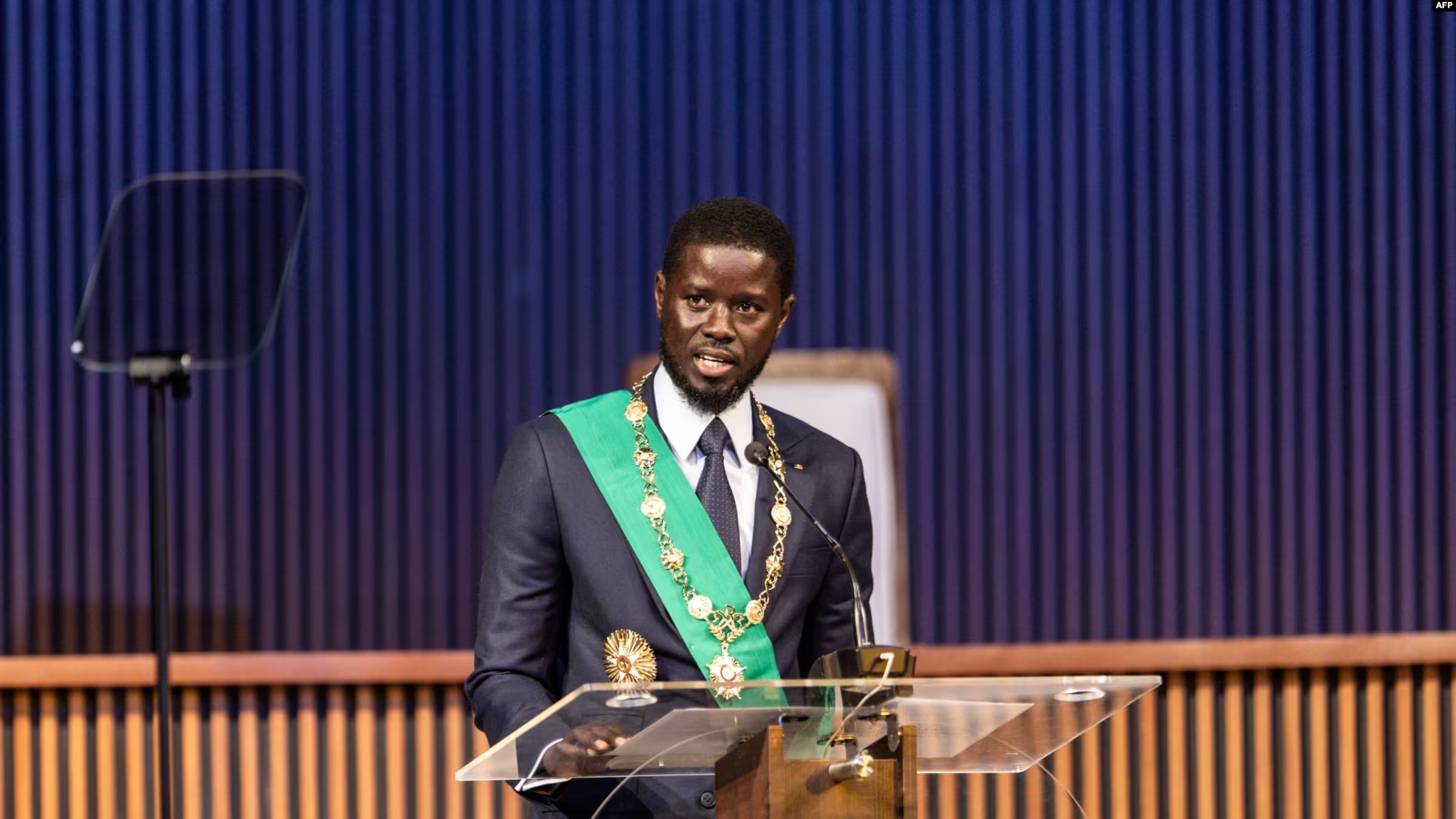
Senegal’s political landscape is bracing for a pivotal parliamentary election on November 17, as President Bassirou Diomaye Faye pushes to consolidate power and advance his reform agenda. The election follows Faye’s decision to dissolve the opposition-led National Assembly, a move aimed at overcoming legislative resistance he claims has stalled his proposed anti-corruption measures and economic reforms. Campaigning, marked by fervent rallies and town-to-town caravans, has officially begun, setting the stage for a contest that may redefine the balance of power in Senegal.
Having secured the presidency with a resounding victory in April, Faye’s leadership faces a crucial test of public confidence. His Pastef party, which previously relied on coalitions, has decided to contest the election independently, aiming for a majority that would enable Faye to pass his proposed legislation unimpeded. Yet, the path to parliamentary dominance is far from assured. An unexpected coalition has emerged between former presidents Macky Sall and Abdoulaye Wade, bringing together two of Senegal’s most seasoned political actors. Their respective parties, the Alliance for the Republic (APR) and the Senegalese Democratic Party (PDS), dominated the outgoing assembly with 106 of the 165 seats, posing a formidable challenge to Pastef’s aspirations.
“This election has symbolic significance,” notes Mamadou Seck, a political analyst, who views it as a litmus test for Faye’s popularity following his electoral promises. “The critical challenge today is for Diomaye Faye to understand whether the people who elected him with 54% still support his program.” Seck observes that Pastef’s decision to run without a coalition might reflect a strategic gamble to gauge its standalone appeal, though the party has sought to strengthen its ranks by enlisting former allies of Sall.
A core component of Faye’s pitch to voters is an ambitious 25-year development plan unveiled earlier this month. This blueprint outlines bold goals to stimulate local industries, diversify Senegal’s economy, and generate job opportunities amid a fast-growing population. These objectives resonate with Faye’s anti-corruption and development rhetoric, which have been central to his political message. If Pastef secures a parliamentary majority, the plan could proceed with fewer legislative barriers, potentially shaping Senegal’s economic trajectory for decades.
Beyond Pastef and the Sall-Wade coalition, the election also features opposition figures such as former Prime Minister Amadou Ba and Dakar’s Mayor Barthelemy Dias, who head smaller opposition alliances. Dias, a vocal critic of the current administration, has cultivated a base in Dakar, an urban stronghold critical to influencing the capital’s vote. Their involvement underscores the stakes of the parliamentary contest and highlights the diverse opposition Faye faces as he seeks to establish his administration’s legislative foundation.
As the election draws near, Faye has called for a “peaceful and dignified” campaign, emphasizing a commitment to ensuring a transparent and respectful democratic process. “I wish all Senegalese and all political actors a peaceful and dignified electoral campaign, and I guarantee that… the best will win,” Faye said in a televised address. This message of unity aims to temper the charged atmosphere surrounding the race, especially as past elections in Senegal have occasionally sparked unrest amid high political fervor.
Should Faye succeed in securing a majority, he will gain a crucial mandate to advance his agenda, allowing for potentially transformative policies. However, a strong showing by the Sall-Wade coalition could spell renewed legislative resistance, challenging Faye’s leadership and testing his ability to navigate Senegal’s complex political landscape. For Senegalese voters, this election will shape not only the immediate future but also the long-term economic and social priorities of one of West Africa’s most stable democracies.
Africa
War Affects More Than 600 Million Women and Girls, UN Says

War now affects over 600 million women and girls worldwide, a staggering 50% increase in just a decade, according to a recent United Nations report. As conflicts intensify and political landscapes shift, U.N. leaders warn that the decades of progress toward gender equality and women’s rights are increasingly at risk. U.N. Secretary-General António Guterres highlighted in a new report the troubling erosion of rights and opportunities for women, saying, “generational gains in women’s rights hang in the balance around the world.”
The findings coincide with the anniversary of U.N. Security Council Resolution 1325, a landmark decision adopted on October 31, 2000, that advocated for equal participation of women in peacebuilding and conflict resolution. More than 20 years on, women’s involvement in peace negotiations remains negligible, hampered by persistent patriarchal structures and limited decision-making power for women in peace and security matters. Guterres emphasized the enduring imbalance: “As long as oppressive patriarchal social structures and gender biases hold back half our societies, peace will remain elusive.”
The report presented a bleak outlook for women in conflict zones, where the rate of female casualties has doubled in the past year. U.N.-verified incidents of conflict-related sexual violence have surged by 50%, and the number of girls affected by violence has risen by 35%. This alarming trend is evident across various regions: from Afghan girls barred from education to Sudanese women enduring sexual violence, and displaced women in Gaza, Syria, and Yemen grappling with the grim realities of conflict.
Sima Bahous, head of U.N. Women, highlighted the pervasive sense of abandonment felt by the 612 million women and girls affected by war, stating that they “wonder if the world has already forgotten them.” Bahous also highlighted stark statistics on food insecurity and health, revealing that one in two women in conflict zones face moderate to severe hunger, and that 61% of global maternal deaths occur in 35 conflict-ridden countries.
Despite the overwhelming need, progress toward including women in peacebuilding remains stalled. Bahous cited the discouraging statistic that women’s representation in peace negotiations has averaged below 10% over the past decade, reaching only 20% in U.N.-supported processes. The U.N. recently introduced a “Common Pledge on Women’s Participation in Peace Processes,” spearheaded by Deputy Secretary-General Amina Mohammed, aimed at urging governments and organizations to appoint more women as lead mediators and to consult with female leaders at all stages of peace processes.
In response to the U.N. findings, diplomats expressed frustration at the ongoing lack of political commitment to advancing women’s roles in peace efforts. Panama’s U.N. Ambassador Eloy Alfaro de Alba spoke directly to this issue, citing the continued absence of “political will” as a key obstacle in fulfilling member states’ commitments to gender equality in conflict resolution.
With calls for concrete action growing louder, the U.N. is emphasizing the need for meaningful inclusion of women in peace processes—not only as a matter of equality but as an essential step toward achieving sustainable peace.
Africa
WHO Urges Rwanda to see off Marburg Outbreak

The World Health Organization (WHO) has commended Rwanda’s robust response to the ongoing Marburg virus outbreak, which has so far resulted in 62 confirmed cases and 15 deaths. Speaking in the Rwandan capital, Kigali, WHO Director-General Tedros Adhanom Ghebreyesus emphasized the importance of sustained vigilance, even as the number of new cases has slowed. Rwanda has recorded no new infections in the past six days, with 44 people recovering from the virus.
“We are encouraged by the fact that no new cases have emerged in recent days, but we must remember that we are dealing with one of the world’s deadliest viruses,” Tedros said during a press conference. “Enhanced surveillance, contact tracing, and infection control measures must continue at full scale until the outbreak is declared officially over.”
Marburg virus, a highly infectious pathogen similar to Ebola, has a fatality rate of up to 88%. The virus causes hemorrhagic fever, with symptoms including severe bleeding and organ failure. However, the mortality rate in the current Rwandan outbreak has been notably lower, at 24%, largely due to the country’s swift and effective response.
Tedros visited a treatment center over the weekend, where he praised the medical staff for saving the lives of two critically ill patients who had suffered multiple organ failure. “These patients were successfully intubated, placed on life support, and have since been extubated and are now recovering,” he noted. This marks the first time patients with Marburg virus have been successfully extubated in Africa, a significant milestone in the treatment of the disease.
While there are no approved vaccines or antiviral treatments for Marburg, potential therapies, including blood products and immune treatments, are currently being evaluated. Earlier this month, Rwanda also initiated a vaccination trial in a bid to curb the outbreak.
Tedros cautioned that an official declaration that the outbreak is over can only be made after 42 days—equivalent to two incubation periods—without any new confirmed cases. He reiterated that continued vigilance is critical, stressing that the nature of the virus leaves no room for complacency.
The Marburg virus is transmitted to humans via fruit bats and can spread between humans through direct contact with bodily fluids or contaminated surfaces. With Rwanda making strides in containing the outbreak, the country’s efforts are being closely watched as a potential model for managing future outbreaks of similar diseases.
-

 Analysis11 months ago
Analysis11 months agoSaudi Arabia’s Billion-Dollar Bid for Eritrea’s Assab Port
-

 Interagency Assessment2 months ago
Interagency Assessment2 months agoTOP SECRET SHIFT: U.S. MILITARY ORDERED INTO SOMALILAND BY LAW
-
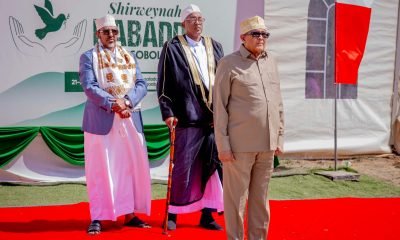
 Somaliland3 months ago
Somaliland3 months agoSomaliland Recognition: US, UK, Israel, and Gulf Bloc Poised for Historic Shift
-

 EDITORIAL1 year ago
EDITORIAL1 year agoDr. Edna Adan Champions the Evolving Partnership Between Somaliland and Ethiopia
-
Top stories2 years ago
Ireland, Norway and Spain to recognize Palestinian state
-

 Russia-Ukraine War6 months ago
Russia-Ukraine War6 months agoFibre-Optic Drones Shift Ukraine’s Drone Warfare
-

 ASSESSMENTS10 months ago
ASSESSMENTS10 months agoOperation Geel Exposes the Truth: International Community’s Reluctance to Embrace Somaliland as a Strategic Ally
-
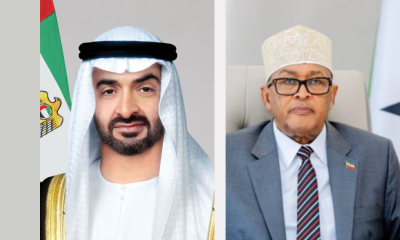
 Somaliland1 year ago
Somaliland1 year agoSomaliland and UAE Elevate Ties to Comprehensive Strategic Partnership


